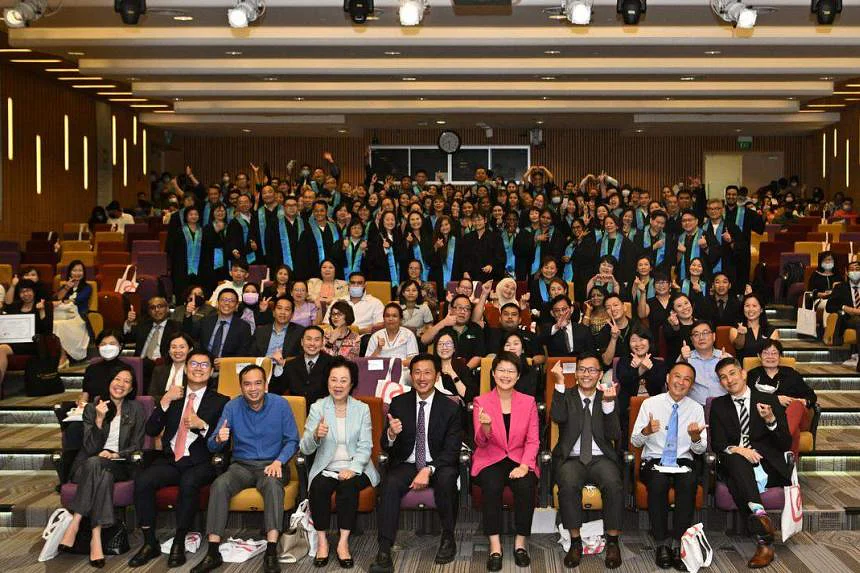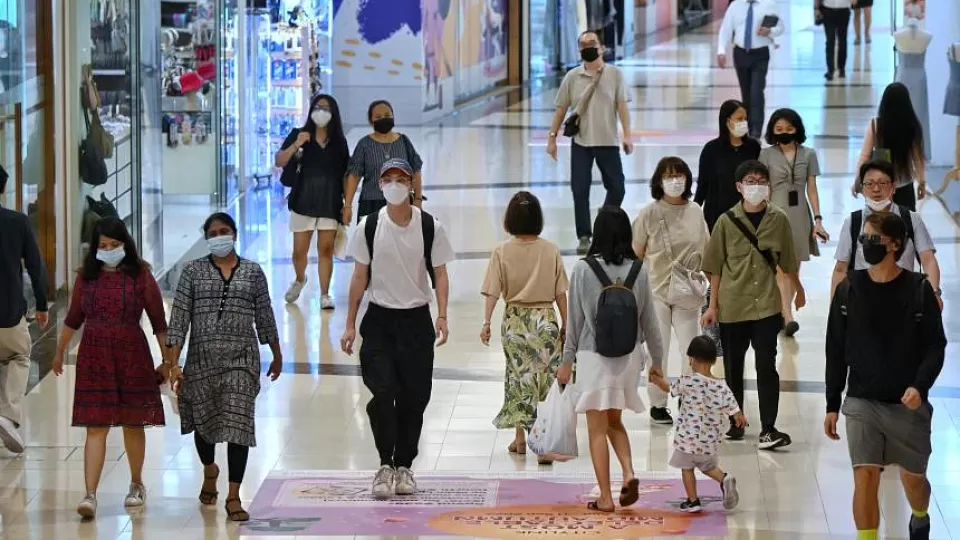November 1, 2022
SINGAPORE – Singapore has ridden the recent Covid-19 wave without having to reimpose safe management measures, but curbs such as indoor masking requirements cannot be ruled out in the event of a nasty new variant, said Health Minister Ong Ye Kung on Monday.
He noted the infection wave driven by the XBB sub-variant is clearly waning, and that Singapore had managed to deal with the wave with practically no restrictions, with indoor masking requirements and vaccination-differentiated safe management measures having been lifted.
While the Covid-19 task force had been “very ready” to reimpose such measures should the situation worsen, these plans were stood down as infection numbers peaked and declined much earlier than expected.
“We’re no longer thinking about it until the next wave comes… I think it’s important to always be very open to the public (about) what we are thinking of, what we might have to do, but only when absolutely necessary,” said Mr Ong.
With virtually all safe management measures lifted, Singapore is now practically back to pre-pandemic normality, with many travelling and the country again hosting numerous international conferences and events, he noted.
This, however, makes the country vulnerable, as it could be one of the first places to encounter a new and dangerous variant, said Mr Ong, who is co-chair of the multi-ministry task force tackling the Covid-19 pandemic.
“We need to be prepared, in case there’s a nasty infection wave. We need to have our contingency plans in place,” he added.
He noted that Singapore had faced numerous Omicron sub-variants, and that in such situations it can be expected that there are recombinants – or variants which combine genetic material from two different variants – of existing sub-variants, such as XBB, which drove the most recent wave of Covid-19 infections here.
There is no reason for such recombinants to always be more transmissible but less severe, Mr Ong said.
“It is a random process of nature, and a new recombinant variant could always take on characteristics of a parent variant that lead to more severe illnesses,” he added.
A key response to future infection waves is Singapore’s vaccine strategy, the minister said, stressing that it is important for older people to keep their vaccinations up to date as they are more likely to develop a severe case of Covid-19.
Even in the last month, two out of every 100 infected people aged 70 and above who were not fully vaccinated either died or ended up in intensive care, he said.
About 53,000 people aged 50 and above have already taken Moderna’s bivalent vaccine, Mr Ong said, noting the vaccine is expected to be rolled out to younger age groups in the coming weeks.
Mr Ong was speaking at the 20th anniversary event of private healthcare training provider HMI Institute.
In his speech, he said healthcare workers have been very busy, particularly since the start of this year amid the Omicron waves. Those staffing the emergency departments (EDs) have had to handle a very large volume of patients, he added.
Singapore’s healthcare clusters are working closely with the Ministry of Health to reduce the workload at the EDs, he said. The measures include encouraging non-emergency cases to go to general practitioner clinics or urgent care centres instead of EDs and discharging those who do not need hospital care to a stepped-down care facility.

Health Minister Ong Ye Kung (front row, centre) and HMI Group CEO Chin Wei Jia (front row, fourth from right) at HMI Institute’s 20th anniversary event. ST PHOTO: LIM YAOHUI
Mr Ong also said that “in the next one to three years, we will need to further build up healthcare manpower and this will include strengthening the pipeline of care support staff to play a very critical role in our healthcare institutions”. This will have to include new local entrants, foreign recruitment, and also mid-career conversions, he added.
During the pandemic, many workers in the service sector, such as airline cabin crew and retail sales assistants, took up roles in healthcare support, which was a big help to the hospitals, he said. However, they have since gone back to their old jobs.
“That whole episode demonstrates that it is possible for us to bring in mid-career entrants who can play a big part in contributing to the healthcare sector.”

